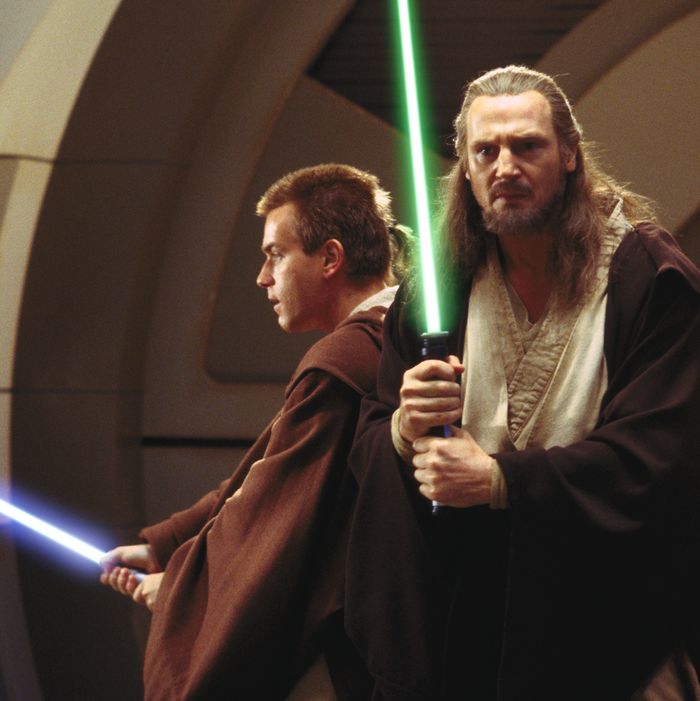Let's be frank, OK? The sword fights in Star Wars are lame. There is no excuse for such poorly choreographed, poorly shot, poorly edited action scenes in one of the most expensive and highly grossed movie franchises. This is all the more lamentable, as George Lucas began making the series after watching loads of Japanese samurai movies, including but not limited to Akira Kurosawa's work. (There are perhaps as many elements "borrowed" from Kinji Fukasaku as Kurosawa, but that's another topic altogether.) After studying the thrilling sword-fight sequences in Yojimbo and Sanjuro, all he came up with was the slow and clumsy lightsaber duels. Huh.
I have been a SW fan since I was 10, but I also grew up with Jackie Chan movies --- imagine my disappointment when I saw the original trilogy for the first time.
The subsequent SW movies had even less excuse. As so expertly dissected by Accented Cinema on YouTube, the sword fights in these movies became faster and more acrobatic (not saying much there) than the original trilogy, but they contained even less emotional impact and visual prowess. As SW movies got progressively worse in action choreography, other non-Asian movies (see Luc Besson, Wachowski brothers, the Bourne series) have absorbed Asian action cinema's many lessons, leading to what I consider the peak of the genre --- Atomic Blonde and the John Wick series made by David Leitch and Chad Stahelski and co, in which one can no longer distinguish the influences from Hong Kong Kung Fu movies to modern Korean and Thai movies.
Back to Star Wars. Accented Cinema pointed out a number of deficiencies in the sword fight scenes, such as the lack of character and emotion, the lack of impact, the lack of stillness and tension, the lack of form, the lack of narrative clarity (who the hell is winning and how?), etc., etc.
This leads to a long-term question I have been interested in -- How to make untrained actors look like real martial artists or action heroes. It's a filmmaking specialty that seems to be lost even in modern Hong Kong and Japanese movies. I don't want to write a Ph.D. dissertation on this topic (although I suspect I could), but two indispensable but vastly overlooked ingredients are:
- Footwork
- Stunt people
Of course, sometimes a director can't turn an actor into Jackie Chan or Gene Kelly in a short time. But most of the time it is apparent that nobody is aware of the importance of lower body movement, which is the issue in every single SW movie. Without footwork, they look like lumbering, fumbling idiots flailing their arms and swords.
The lack of good stunt cast is perhaps the most invisible but critical element in filming action scenes. From the Zatoichi to John Wick, no action hero can look good on screen without an army of skilled and selfless stunt cast to be beaten up and die with impeccable reaction and timing. This is why, in The Matrix, Keanu Reeves looked the best when he is fighting a herd of villains and the worst when he is fighting Laurence Fishburne one on one --- because neither has the training and experience to take a hit and fall realistically. This is why the experts like Sammo Hung, Yuen Woo-Ping, Jackie Chan, and Donnie Yen (and, I suspect, David Leitch and Chad Stahelski) have their own teams of stunt actors. The decline and demise of Hong Kong and Japanese action cinema can be directly traced to the dwindling supply of well-trained stunt actors.
Stars come and go, but stunt actors are forever.







